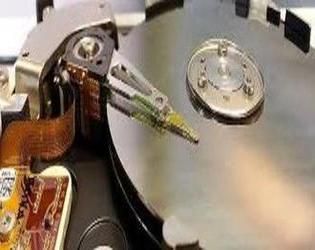A lot of important data are saved in your device that losing it can be too costly for you. From personal mementos to life-changing files, all of them are stored in the deepest crevices of your computer or laptop but don’t forget that these storage devices won’t last you forever. For starters, they usually have a limit as to how much files can be saved at a time. Next, a lot of factors can lead to data loss and while many of them are preventable, the time will come that your device will no longer work as efficiently as it once did and may be the reason for the loss of your data. There are also known triggers that have a big impact on your device’s hard drive like: https://www.harddrivefailurerecovery.net/get-informed-about-these-6-hard-drive-killers/.
 When this time comes, replacement is always an option but the most sensible thing to do is to back up your data before even losing it. However, even backed-up data don’t have an assurance you won’t ever lose it. Flash drives and external hard drives can only accommodate so much and they are just as vulnerable as your PC or laptop especially when neglected and not given proper care. You would want to back up before your device even fails so you spare yourself from the agony of dealing with data loss in the midst of an important event or when you are trying to beat a deadline. But once your hard drive is no longer functional, don’t put off buying a new one because you won’t be able to use your existing device without it.
When this time comes, replacement is always an option but the most sensible thing to do is to back up your data before even losing it. However, even backed-up data don’t have an assurance you won’t ever lose it. Flash drives and external hard drives can only accommodate so much and they are just as vulnerable as your PC or laptop especially when neglected and not given proper care. You would want to back up before your device even fails so you spare yourself from the agony of dealing with data loss in the midst of an important event or when you are trying to beat a deadline. But once your hard drive is no longer functional, don’t put off buying a new one because you won’t be able to use your existing device without it.
Which drive should you get?
You have a lot of options depending on what kind of storage fits inside your desktop or laptop, how many gigabytes or terabytes you need, and what you’re willing to spend. Here’s a quick rundown of the basics:
Solid-State Drive
Generally, if you’re looking for performance above all else, you can’t go wrong with a great solid-state drive (SSD). SSDs are incredibly quiet, absurdly fast, and barely weigh anything.
You’ll pay for these conveniences: If you need a ton of space (say, 2TB), you’ll be spending anywhere from six to ten times the price of a regular hard disk drive (HDD). If you’re considering an even-faster M.2 solid-state drive (that connects via your system’s speedier PCI Express bus instead of your system’s slower SATA connections), be prepared to shell out even more—four digits, in some cases.
(Via: https://lifehacker.com/how-to-upgrade-your-computer-with-a-new-drive-1825299803)
At this time and age, you have a lot of options to choose from depending on your need and budget. Some look at the features while the rest look at the price of these data storage options because you got to admit it, these things matter a lot. A Solid-State Drive is an excellent choice because it can definitely meet most, if not all, of your expectations but just better be sure that you are willing to pay the price. They are lightweight, fast, and really quiet, so these nice features come at a price that not everyone can afford.
The biggest obstacle to the adoption of SSDs is the price of the newer drives compared to hard drives.
“Today’s typical online price for a 2.5-inch 512GB SSD is $140 to $170,” said Backblaze.
“The typical online price for a 3.5-inch 512GB HDD is $44 to $65.”
This is critical for data centres, where the cost-per-GB is a fundamental factor in their profitability.
“The primary concerns for data centre storage are reliability, storage density, and cost,” said Backblaze.
“While SSDs are strong in the first two areas, it’s the third where they are not yet competitive.”
As appealing as they are, it highly unlikely that they will replace traditional hard drives anytime soon. SSDs undeniably have superior features but hard drives work just as well at a price that the masses can afford and willing to pay for. Price is a major stumbling block for everyone but if you are someone who won’t mind spending 4-6 times more than the price of regular hard drives, then, by all means, indulge yourself in this new technology. But you should be aware also that using an SSD is just like a regular hard drive, meaning it is just as vulnerable and can easily be damaged especially when not handled properly or infected by some nasty bug like ransomware or other malwares.
If you experience problems like https://www.harddrivefailurerecovery.net/is-your-hard-drive-making-a-clicking-noise/, getting a new hard drive is just up on the horizon so consider your options first before making that purchase.
